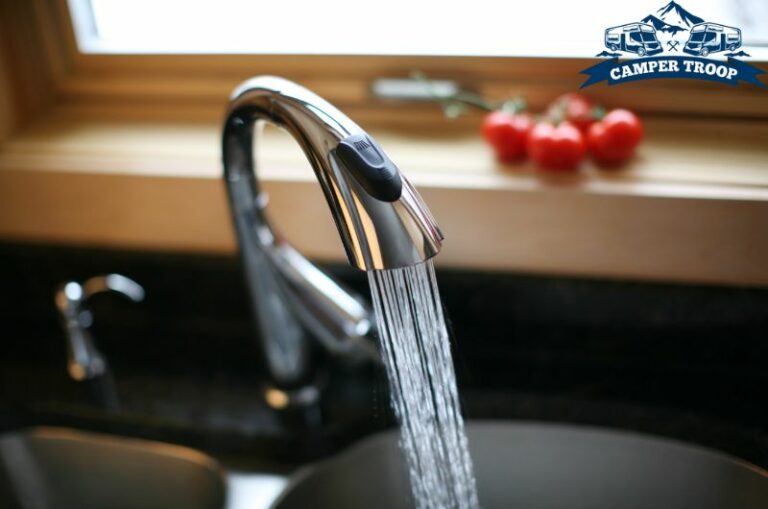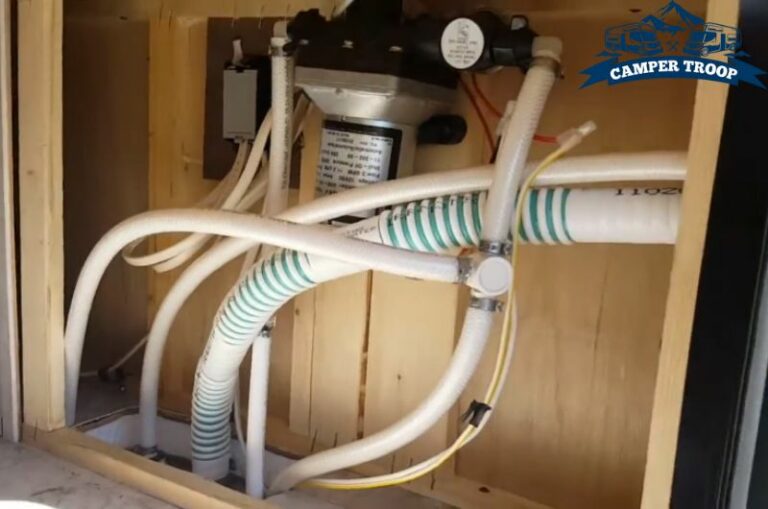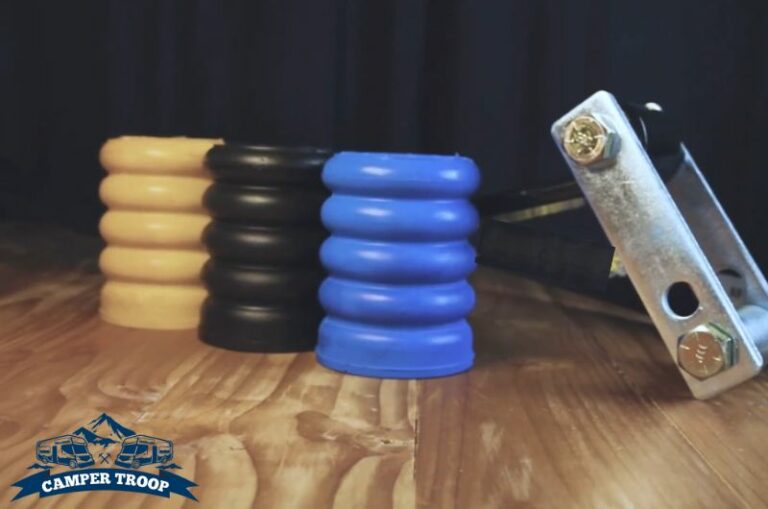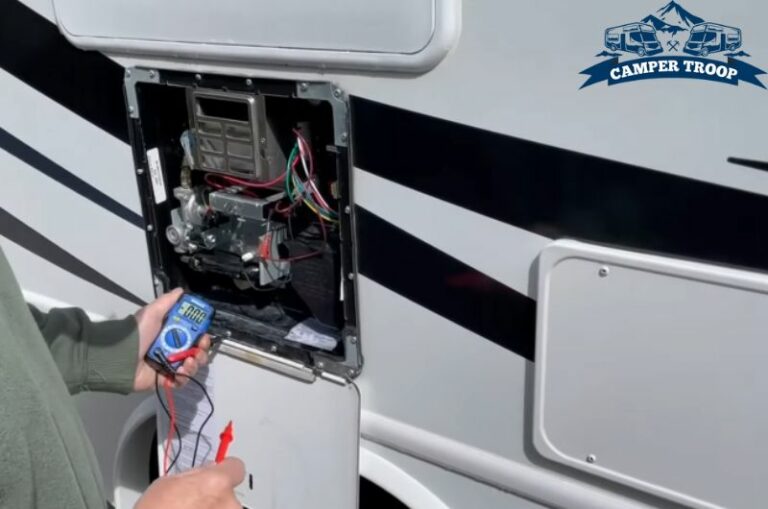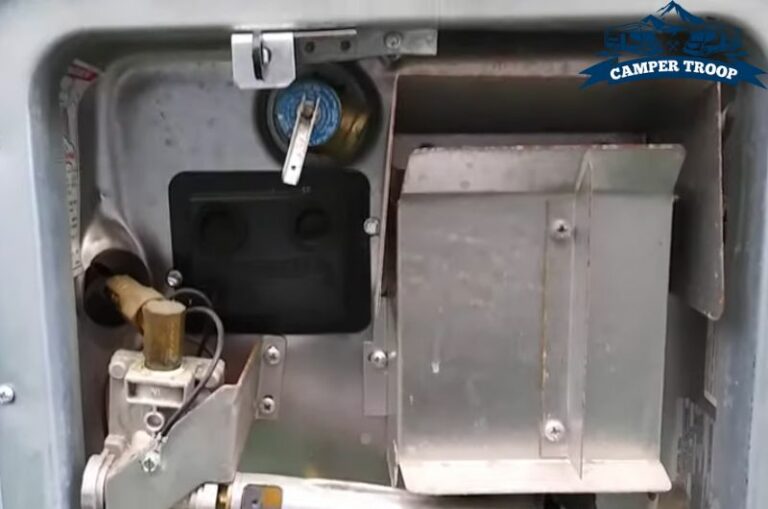All About RV Water Heater (9 Things You Should Know)
If you have used an RV for going on minimalistic road trips, you should know how the RV water heater works. People tend to have mixed reviews about this heater. However, you can’t deny its practicality.
Unlike most similar appliances, RV water heaters are powered by propane. This gives it a unique setting in the form of a six-gallon to ten-gallon tank. While most of these tanks work only on propane, many also support electricity.
So, did we catch your interest yet? In this article, we will be covering some of the most interesting nine facts about the RV water heater. So, whether you are cooking or taking a shower, you will know how to use them.
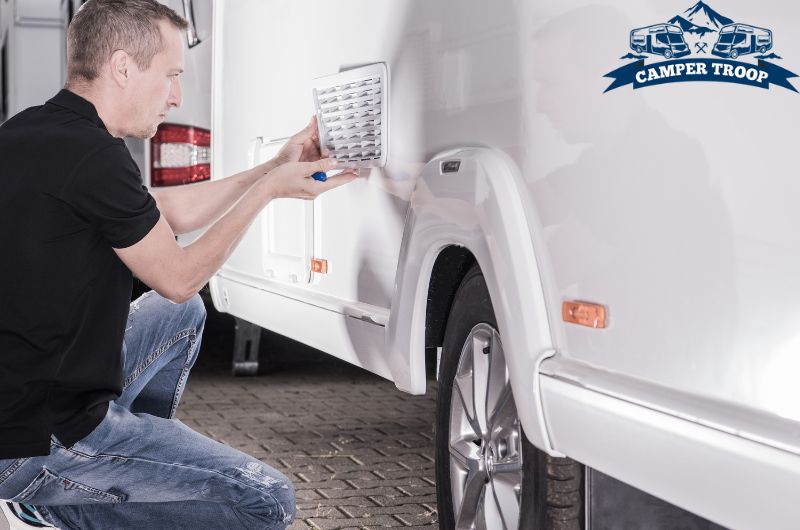
9 Things You Should Know About RV Water Heater
If you are going to use the water source included in the RV, you might have to face a lot of problems. In this section, we will be covering nine important facts that you might need to know when using the RV water heater.
Fact 1: Power Source of Water Heaters
Typical RV water heaters make use of three types of energy- electricity, propane, or heat from the engine. Most RVs commonly tend to use electricity as their main source of energy to heat up the water.
Once the water has been heated up, the electricity is turned off to conserve energy for the future. While both propane and heat from the engine work in the same way, heat from the engine is the most economical option.
Fact 2: There Are Two Main Manufacturers
If you are going to use RV water heaters, you are going to obtain yours from two main manufacturers. These are wood and suburban. Most RV brands acquire their heaters from these two manufacturers.
Once acquired, they are authorized to install them in the RV so that you can use them later on.
Fact 3: Tanks have a very limited size
Tanks come in sizes ranging from 6 to 10 gallons. This will depend on the unit that you buy. This is because RV makers tend to install tanks by the size proportion of the RV itself.
Fact 4: The Tanks are smaller than the ones used in homes
The water tanks that you get in your houses usually vary from 40 to 50 gallons. However, RVs have a more minimalistic setting that can only allow a compact 6 to 10-gallon tank capacity.
Fact 5: An anode rod is needed to avoid corrosion.
If the heater of your RV water supply runs on electricity, it is highly prone to corrosion due to electron discharges. Using an anode rod sucks in the excess electrons so that they do not cause any corrosion on the tank.
Anode rods are relatively expensive, and most luxurious RVs even come packed with them beforehand.
Fact 6: Turn off Propane heaters if you are going out
Let us say that you are going out for some time with your RV packed away in your garage. In these cases, we advise you to turn off your propane supply beforehand.
Not only will this increase the life expectancy of your heater, but this should also help you not waste any propane when not in use.
Fact 7: Warm Water Is Always Available
Unlike the ones that you use in your homes, RV water heaters are much quicker, providing a warm water supply as soon as possible. All you need to do is turn on the switch that activates the heater.
Most people tend to keep the heater on at all times unless they are getting out of the RV. This is kept for the sake of convenience.
Fact 8: Regular Maintenance is Needed
For best performance and longevity, it is advised that you run maintenance checks at regular intervals. Do note that once there are any specific problems with your RV water heater, it won’t be easy to repair.
Although maintenance is no easy task, you should always consider paying as much attention as possible when running a diagnosis.
Fact 9: Drain Water From Tanks
If you are not going to use your RV during the winter, you should drain all the water from the tank. If you do not drain your tanks, the heater valves might start freezing. This can be incredibly inconvenient later on.
Read Also: What Size Socket Is The Best For Water Heater Element
Types of RV Water Heaters
If you are going to consider the technical side of RV water heaters, there are three main categories that exist. Depending on the RV unit that you own, your water heater tank would be one of these three types.
Propane (LP) Only RF Water Heater
These are the oldest types of water tanks that run on propane gas to heat up the water in the tank. Propane works similarly to gas stoves by creating a small flame using sparks. The flame then heats up the tank.
For this propane to work, it requires some activation energy from an external 12V power supply. This is typically drawn from the batteries.
This is operated via a switch that also provides safety features such as not allowing gas flow when the system detects an ignition failure.
Gas + Electric Water Heater
These types of heaters work on both gas and 120V electric supply or even on one of the two solos. RV water heaters included in this category tend to be much more expensive to both buy and maintain.
There are certain drawbacks to this system, which mainly include the fact that it takes some time to heat up the water tank. In addition, they will use a significant amount of power from the batteries, often causing any other appliances to lose power.
Tankless RV Water Heater
A tankless water heater is a very modern invention that hasn’t been in use until a few.
Tankless water heaters operate by heating up the water that moves within your pipes. This gives it the moniker of ‘heat from the engine. Not only is this process quite quick, but it also helps in preventing the water from running out.
However, do note that these types of heaters are relatively very expensive and can also be sensitive to pressure changes. As such, frequent maintenance is advised for long-term usage.
Read Also: How to Know Your RV Water Heater Switch On or Off?
How Does RV Tankless Water Heater Work?
The RV tankless water heater or RV-instant-hot-water-heaters can be very pricey. However, no one can deny its usefulness and how convenient it can be.
Tankless water heaters work by automatically heating up the weather as soon as you turn up the water faucet. Rather than the conventional way of heating the water tank, tankless heaters heat up the water as it moves through the pipes.
This makes the process incredibly quick and functional. Additionally, you can also set up the water temperatures quite conveniently by making use of control panels.
Pros of Tankless Water Heater
- Does not waste any energy
- A virtually endless supply of hot water
- Occupies less space than most other tank heaters
- Doesn’t use much propane or electricity to run processes
- Very quick supply of hot water
Cons Of Tankless Water Heater
- Incredibly expensive
- Size may not fit into your RV
Read Also: 5 Common Reasons Why Your RV Water Heater Won’t Shut Off
How To Turn On An Electric Rv Water Heater?
If you’re going to use the electric water heater in your RV, you will need to follow the following procedure. While some deviations exist depending on the models, the general process has similar steps.
Step 1: Preparations
The first step is the preparatory step that you will need to follow to ensure that the water runs smoothly. Run a visual inspection of the components and ensure that there is enough water in the tank.
Step 2: Access Panel
Locate the access panel which is outside of your RV. Once you have located it, make sure to remove the cover.
Step 3: Switch Heater On
You will find the on and off switch inside the heater control panel. Turn on the heater by flipping the switch. This should activate your electric RV water heater.
Read Also: 8 Common Causes of a DSI Fault Light on RV Water Heater
RV Water Heater Maintenance Guide
There are several points that can be good to remember when running maintenance on the water heater. We have compiled some of the most common must-dos that you can follow.
Regular Maintenance
It is advisable that you run regular maintenance on the water heart of your RV. This is because these heaters can be quite delicate and are especially prone to damage during weather changes.
You can consult your manual for regular maintenance. In addition, you can also contact a mechanic to help you out.
Flush Out The Water Twice A Year
You should flush out the water twice a year at the minimum to remove a buildup of minerals such as zinc, iron, and calcium.
In addition, if you carry out the flushing during the winters, it will prepare the heater in the tank to survive through the winters without freezing. This should improve its overall performance while ensuring longevity.
Check Heating Element
The heating element is the most important part of the entire heater. This is the reason why the heater is able to heat up the water in the first place.
When cleaning the tanks, you should also clean up the heating element. Make sure that no dust or water droplets can accumulate since they can interfere with the heat transfer.
Check The Vents
Another important component that is responsible for keeping the heater working is the vents. If the vents are clogged, air will not be able to pass properly, thus reducing the heating efficiency.
That is why you should always clear away the vents whenever you’re running maintenance on the RV water heater.
Read Also: RV Water Heater Anode Rod: Everything You Need To Know
FAQs.
By now, you might have a lot of questions and confusion in your mind. While we can’t provide answers to all of them, we will try our best to answer some of them.
What Is The Life Expectancy Of An RV Water Heater?
An RV water heater typically has a lifespan of 10 to 15 years. However, it can last for five more years if it is well taken after.
Do All RV Hot Water Heaters Have An Anode?
No, not all water heaters in an RV have an anode. Generally, only the ones that run on electric energy have an anode rod. This is to prevent the charge from corroding the steel.
How Long Does It Take A 6 Gallon RV Water Heater To Heat Up?
A 6-gallon water tank should be fully heated in 58 minutes or less. However, do note that this is only a rough estimate which is not the most accurate.
How Do I Know If My Rv Water Heater Anode Is Bad?
You can know when your rod has gone bad when more than 75 percent of the total rod has dissolved in the water. Other signs may include when the steel tank starts showing signs of corrosion.
How Much Propane Does A RV Water Heater Use?
For a 6-gallon of water rated at 10,000 BTUs, it would take about 20 pounds of propane to heat it. This is usually within a time frame of 42 minutes.
Conclusion
RVs are not only known to be appropriate for traveling, but they can also be your partner if you prefer a minimalistic nomadic lifestyle. The only catch is that you should always be prepared if something goes wrong.
In addition, as well as you have made measures while running maintenance, you shouldn’t run into problems any time soon. Hopefully, this article has been able to help you out in making these countermeasures.
Read Also: Common Jayco Water Heater Problems & Solutions

Zayan is an accomplished author and a go-to expert for all things RV and camper-related. With a passion for adventure and a knack for problem-solving, he has spent years exploring the open road and fine-tuning his knowledge of recreational vehicles.
Zayan’s writing is a testament to his expertise, offering readers practical solutions to common RV dilemmas. Whether it’s troubleshooting mechanical issues, optimizing space, or planning the perfect road trip, Zayan’s insightful advice and engaging storytelling make him an invaluable resource for both seasoned travelers and newcomers to the world of RVing.

